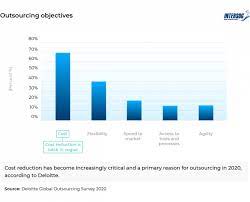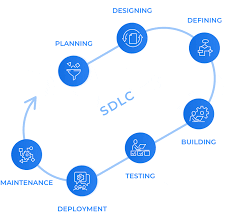Unlocking Success with Agile System Development Strategies
The Benefits of Agile System Development
Agile system development is a methodology that emphasizes flexibility, collaboration, and continuous improvement in the software development process. Unlike traditional waterfall methods, agile development breaks down projects into smaller, manageable tasks that can be completed in short iterations.
Key Principles of Agile Development
Agile development is guided by several key principles:
- Iterative Approach: Projects are divided into small increments, allowing for incremental progress and feedback.
- Collaboration: Cross-functional teams work closely together to deliver high-quality results.
- Adaptability: Requirements and solutions evolve through the collaborative effort of self-organizing teams.
- Rapid Delivery: Working software is delivered frequently, typically in weeks rather than months.
The Benefits of Agile System Development
Flexibility and Adaptability
Agile development allows for changes to be made throughout the project based on feedback and evolving requirements. This flexibility ensures that the final product meets the needs of stakeholders effectively.
Faster Time-to-Market
By breaking down projects into smaller iterations, agile development enables quicker delivery of working software. This rapid pace helps businesses respond to market demands more efficiently.
Improved Quality
The collaborative nature of agile development promotes continuous testing and feedback, leading to higher-quality end products. Bugs and issues are identified early and addressed promptly.
Enhanced Customer Satisfaction
Agile methodologies prioritize customer involvement throughout the development process. Regular reviews and feedback sessions ensure that the final product aligns with customer expectations, resulting in higher satisfaction levels.
In Conclusion
Agile system development offers numerous benefits for organizations looking to streamline their software development processes. By embracing agility, businesses can adapt to changing requirements, deliver value quickly, and enhance overall customer satisfaction.
Top 5 Frequently Asked Questions About Agile System Development Explained
- What is an example of Agile development?
- What are the 4 principles of Agile?
- What are the five steps in agile development?
- What are the 4 Agile processes?
- What are the 6 principles of Agile software development?
What is an example of Agile development?
An example of Agile development is the implementation of the Scrum framework in software development projects. In Scrum, cross-functional teams work in short iterations called sprints to deliver incremental value. Daily stand-up meetings, sprint planning sessions, and sprint reviews are integral parts of the Scrum process, promoting collaboration, adaptability, and continuous improvement. By following the principles of Agile methodology like transparency, inspection, and adaptation, teams can effectively manage project requirements and deliver high-quality software products in a timely manner.
What are the 4 principles of Agile?
The four key principles of Agile methodology are iterative development, collaboration, adaptability, and rapid delivery. Iterative development involves breaking down projects into manageable increments to allow for continuous improvement and feedback. Collaboration emphasizes the importance of cross-functional teams working closely together to achieve common goals. Adaptability means that requirements and solutions can evolve through team collaboration and self-organization. Rapid delivery ensures that working software is delivered frequently, enabling businesses to respond quickly to changing needs and market demands. These principles form the foundation of Agile system development, promoting flexibility, efficiency, and customer satisfaction.
What are the five steps in agile development?
In agile system development, the five key steps typically followed are: (1) defining the project vision and scope, (2) creating a product roadmap outlining high-level goals and milestones, (3) breaking down the project into smaller tasks during sprint planning, (4) developing and testing the software incrementally in short iterations called sprints, and (5) reviewing and adapting the product based on feedback received during each sprint. These iterative steps allow teams to continuously improve the product while maintaining flexibility to respond to changing requirements efficiently.
What are the 4 Agile processes?
In agile system development, there are four core processes that form the foundation of the methodology. These processes include: 1) Sprint Planning, where the team collaborates to define the work that will be completed during a sprint; 2) Daily Stand-up Meetings, brief meetings where team members discuss progress, challenges, and plans for the day; 3) Sprint Review, a session at the end of each sprint to demonstrate completed work to stakeholders and gather feedback; and 4) Retrospective, a reflection meeting held after each sprint to identify areas for improvement and implement changes for future iterations. These four agile processes ensure transparency, collaboration, and continuous improvement throughout the software development lifecycle.
What are the 6 principles of Agile software development?
In Agile software development, there are six key principles that guide the methodology’s approach to project management and software delivery. These principles include prioritizing customer satisfaction by delivering valuable software, welcoming changing requirements throughout the project, frequently delivering working software iterations, collaborating closely with customers and stakeholders, supporting motivated individuals and providing them with the necessary environment and support, as well as emphasizing face-to-face communication as the most efficient form of conveying information within a development team. By adhering to these principles, Agile teams can effectively respond to change, deliver high-quality products, and maintain a customer-focused approach throughout the development process.






